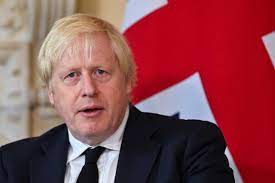The United Kingdom (UK) economy recorded a mere 0.1 percent growth in October, representing a sharp slowdown from September’s 0.6 percent growth and well below what analysts had forecast for the month.
The Office for National Statistics (ONS), in its report, attributed the slowdown in growth to a big decline the construction sector, which also suffered its largest drop in business since April 2020, as well as the weight of supply chain issues earlier this year.
Analysts had earlier projected that the country’s gross domestic product (GDP) would rise by 0.4 per cent in the month under review.
A further analysis of the GDP figures on sectoral basis showed that the health sector and second-hand car sales aided the month’s growth, while the dominant services sector reached its pre-pandemic level for the first time in 20 months.
In his comments, ONS chief economist, Grant Fitzner said the gains were, however, “offset” by a steep drop in the number of people dining out and reductions in oil extraction and gas use.
According to him, the economy’s growth is also stunted by “notable falls in house building and infrastructure work, partly driven by shortages in raw materials”.
The ONS further stated that figures also marked the latest signal of Britain’s stuttering recovery from the pandemic, with the economy still 0.5 per cent below pre-pandemic levels.
Responding to the October GDP figures, Chancellor of the Exchequer, Rishi Sunak, said: “We’ve always acknowledged there could be bumps on our road to recovery, but the early actions we have taken, our ongoing £400 billion economic support package and our vaccine programme, mean we are well placed to keep our economy on track.
“We have still been recovering quicker than expected, with more employees on payrolls than ever before and redundancies remaining low.”
In her remarks, investment director at Fidelity International, Ms Maike Currie, said the “steam has well and truly been taken out of the UK economic recovery” from coronavirus restrictions, adding that “supply chain issues, worker shortages and surging inflation put the dampeners on growth in October.”
The investment expert cautioned that October might be the “closest the economy gets to reaching ‘normal levels’ until deep into 2022”, as concerns over the new COVID-19 variant continues to cause a “creeping sense of déjà vu.”






